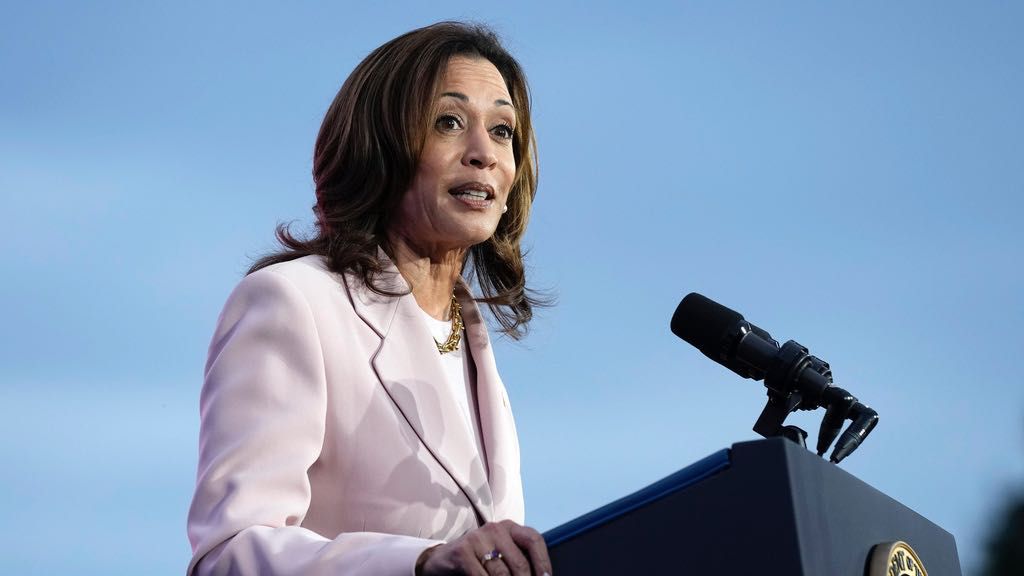Vice President Kamala Harris visited North Carolina on Wednesday, where she discussed economic opportunity and advancement at Charlotte’s Johnson C. Smith University, a historically Black institution.
"Debt is probably one of the biggest issues that holds people back in our country. And we decided to take it on," Harris said Wednesday. "Our philosophy is that we want people to not just be able to get by, but get ahead. And debt is one of those things that holds people back from getting ahead."
Harris’s stop in Charlotte on Wednesday — her fifth trip to North Carolina during 2024, and her 13th to the state since taking office in 2021, per the White House — underscores the importance the Biden-Harris campaign has placed on the Tar Heel State ahead of the November presidential election.
Though this was an official White House event, rather than a Biden-Harris campaign event, the lines can at times feel a bit fuzzy as she celebrates the administration’s policy victories with only six months to go until November's election.
Wednesday’s stop was Harris’s fourth on her Economic Opportunity Tour, where she spoke once again about federal investment in communities, about building wealth — with a focus on home ownership — and about working to ensure Americans have the "ability to thrive."
Harris repeatedly touched on home ownership on Wednesday, calling out past federal policy practices around urban renewal — which, she said "basically resulted in freeways cutting through Black communities and other communities of color, thereby dividing up communities" — as well as racial biases in the home appraisal process and grants for first-generation home buyers.
"Homeownership is one of the best ways that we achieve intergenerational wealth," Harris said. "We also know that it is one of the many issues where we have seen incredible obstacles for Black families."
The tour — which has thus far held events in Atlanta, Detroit and Milwaukee — has emphasized the administration’s successes among the Black community: the fastest creation of Black-owned businesses in more than 30 years; creating 2.6 million jobs for Black workers; record low Black unemployment rates; increasing the wealth of Black families; and increasing the share of federal contracts to minority-owned businesses.
Harris has also highlighted the administration’s work on student loan debt forgiveness, medical debt forgiveness, lowering the price of health care, the growth of Affordable Care Act enrollment, increasing funding for the Child Care Development Block Grant and billions of dollars in infrastructure investments across the country.
"You know, somebody talked about Infrastructure Week, which never happened. We actually got it done," Harris said, jabbing at the Trump administration’s constantly broken promise that it would finally seek to address infrastructure issues in America — one which became a running joke to observers.
But Harris sought to make one point in particular — that anyone who took on student loan debt to pay for their schooling should seek out help for repaying if they need it, whether or not they finished their degree.
"You are entitled to student loan forgiveness even if you did not graduate," Harris said, pleading for the audience to share the word. "A lot of people drop out because they can’t afford to pay tuition, and before they dropped out, they were taking out student loans. The student loan company ain’t saying, 'Well, since you didn’t graduate, you don’t owe us.’ So, people who had to drop out still owe that debt."



